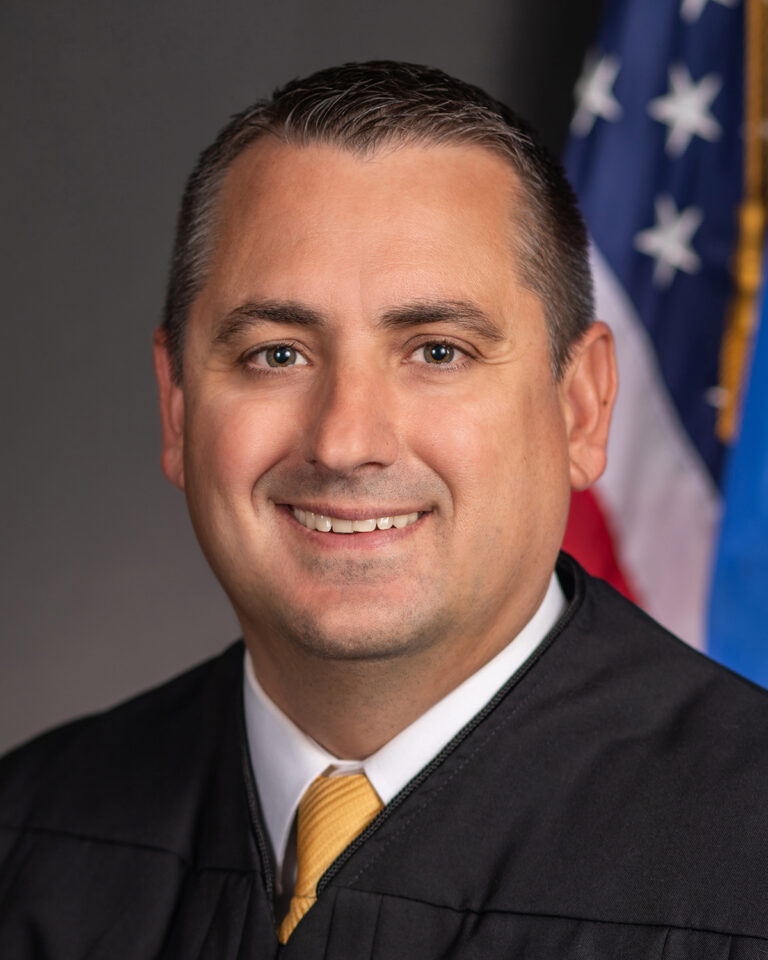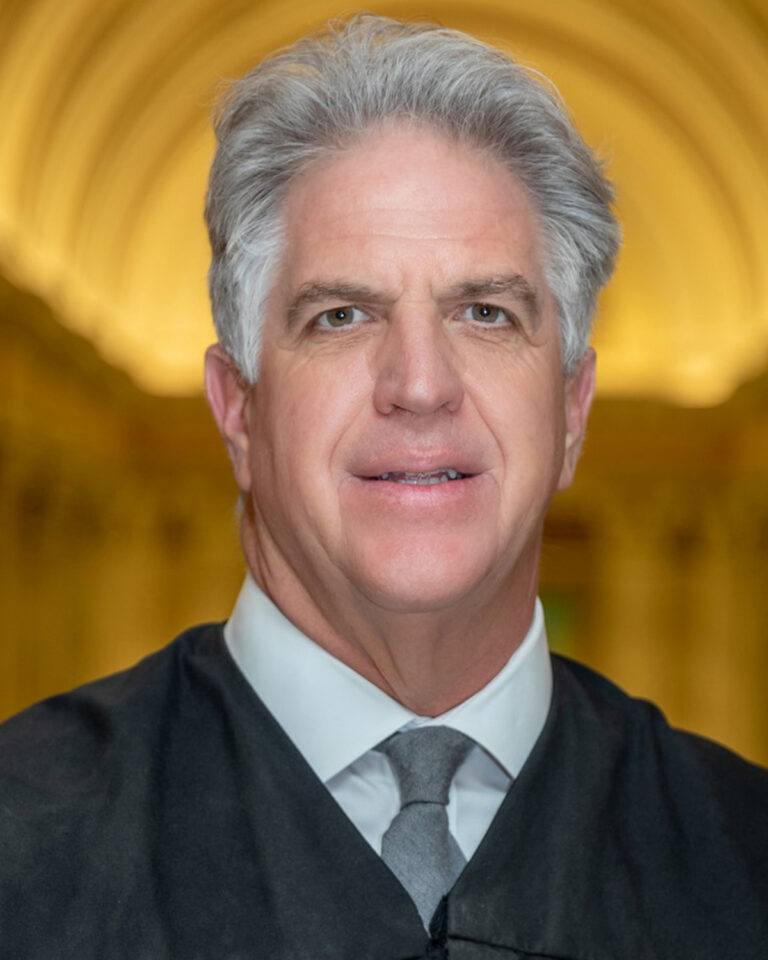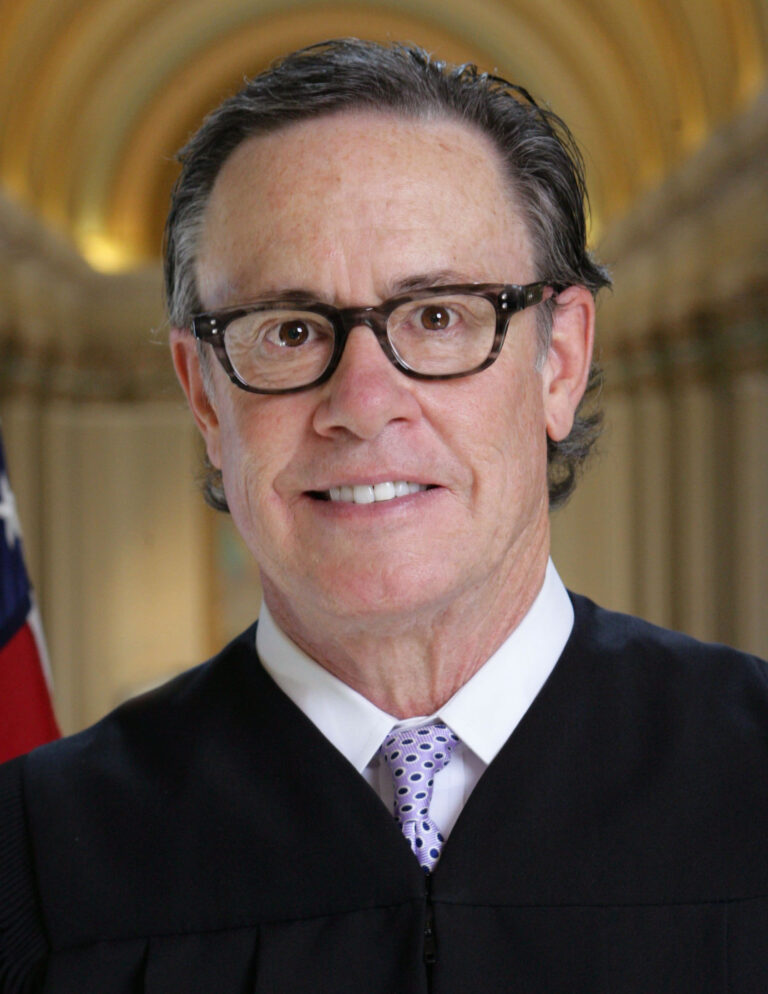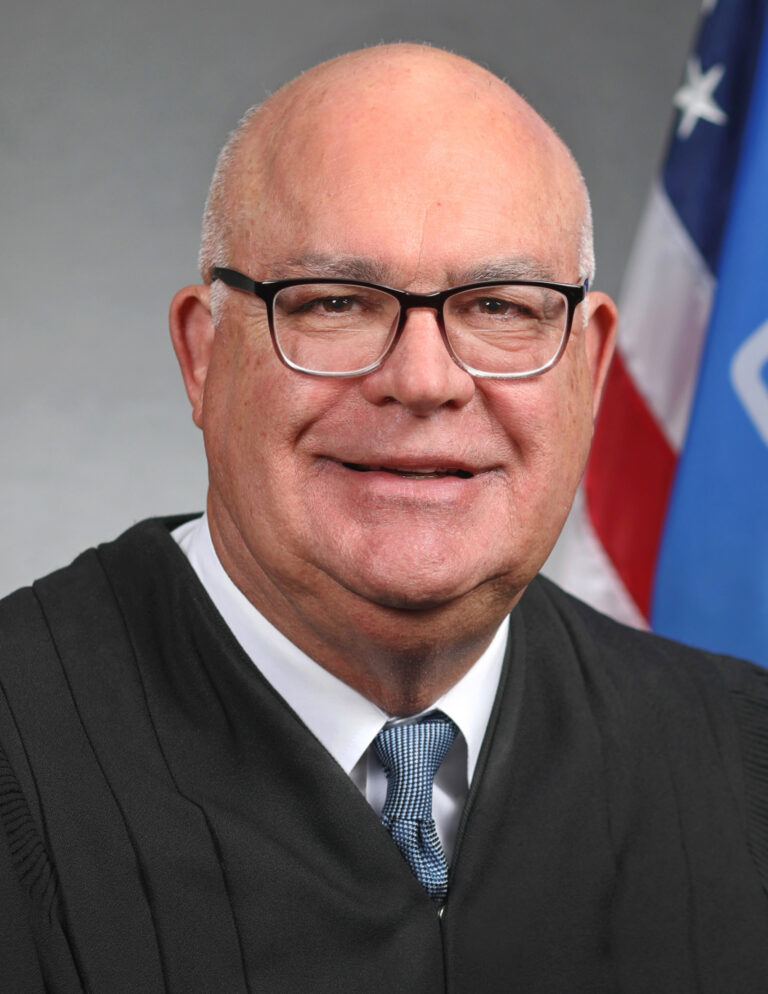

Oklahomans have 12 judicial retention elections on their ballots Tuesday, Nov. 5. Of those 12 decisions awaiting the electorate, three state Supreme Court justices are up for retention votes, and three appellate judges on the Court of Criminal Appeals also face retention or rejection by voters.
The other six jurists up for consideration serve as judges on the Oklahoma Court of Civil Appeals, an intermediate appellate court whose decisions can be appealed to the Oklahoma Supreme Court. The Court of Civil Appeals features four, three-judge panels, two of which are based in Tulsa and two of which are based in Oklahoma City. The six judges up for retention votes — Robert “Bobby” Bell, Timothy Downing, Brian Jack Goree, Jim Huber, E. Bay Mitchell III and Thomas E. Prince — compose half of the membership of the Court of Civil Appeals, which reviews the decisions and case rulings of district court judges when they are appealed.
RELATED
Supreme Court retention: PAC targets Yvonne Kauger, James Edmondson, Noma Gurich by Tristan Loveless
Appellate judges on the criminal and civil appellate courts and the state Supreme Court come up for retention votes every six years, giving Oklahomans the option to retain them in office or force them out in favor of a new appointee. No appellate judge has ever lost a retention vote. In the event of a vacancy, those interested in serving apply for the position through the Judicial Nominating Commission, a private review body comprised of attorneys and lay people appointed by state leaders or elected by the Oklahoma Bar Association. The governor ultimately appoints the new appellate judge from a list of nominees presented by the JNC.
Despite being the state’s biggest appellate court with 12 judges, the Oklahoma Court of Civil Appeals does not have a website. The court’s budget and ability to establish a website are topics controlled by the nine-member Oklahoma Supreme Court, which does have a website on which it publishes opinions and other information. The Court of Criminal Appeals, with five judges, also has its own website. Court of Civil Appeals opinions (as well as Court of Criminal Appeals opinions and Supreme Court opinions) are published on the Oklahoma State Courts Network homepage, and a full list of civil opinions can be found at this link.
In preparation for the Nov. 5 elections, NonDoc sent questionnaires to all judges up for retention votes this year. The following article offers an overview of each Court of Civil Appeals judge up for a vote, including when and by whom they were appointed, biographical information and quotes from their questionnaire responses. A PDF of the judges’ full responses to the questions can be found at the end of this article.
All judges up for retention votes answered NonDoc’s questions, and they are presented below in alphabetical order.
Robert ‘Bobby’ Bell

Age: 56
Hometown: Norman
Law school: University of Tulsa College of Law
Judge Robert “Bobby” Bell was appointed to the court in June 2005 by Gov. Brad Henry, according to his biography. Bell said he only expects to serve one more term if he is retained Nov. 5. He served as chief judge of the Court of Civil Appeals in 2011. In addition to his J.D., Bell holds a Master of Law (LLM) degree from Duke University, and he serves an adjunct professor at the University of Oklahoma College of Law and the Oklahoma City University School of Law. Prior to becoming a judge, Bell worked in private practice in Norman for 13 years.
In his questionnaire responses, Bell said he felt the judiciary’s biggest issue involves “access to justice.”
“I think the whole system is too expensive and I am seeing more and more pro se litigants representing themselves in court. I don’t have an answer to this problem,” Bell said.
Bell also said he has would “love” to have a Court of Civil Appeals website.
“I have tried to open public access to our court by having our oral arguments open to the public. We always announce them on OSCN and I have also had hearings at the state’s law schools to accommodate more people, if they want to attend,” Bell said. “If we could livestream our hearings, that would be great, but the Court of Civil Appeals has no access to a budget. Our budget is totally controlled by the Supreme Court. I would LOVE to have a website, but we are limited in that regard.”
Bell said he hopes “the voters know how serious the Court of Civil Appeals take their jobs and their work.”
“I am proud of the caseload we complete and how we simply follow the law and resolve conflicts,” he said. “All of the Court of Civil Appeals judges that are up for retention this year are great judges and even better people.”
Timothy Downing

Age: 45
Hometown: Purcell
Law school: Regent University School of Law
Appointed by: Gov. Kevin Stitt
Judge Tim Downing was appointed to the court by Gov. Kevin Stitt in May 2022. Prior to his appointment, he served in the Oklahoma Attorney General’s office. A U.S. Army reserve member and judge advocate, he was appointed by former President Donald Trump to be the 25th U.S. Attorney for the Western District of Oklahoma, according to his biography.
Downing served one term in the Oklahoma House of Representatives, representing HD 42 in the 2017 and 2018 sessions. Downing served as assistant majority floor leader, an assistant majority whip, and vice chairman of the House Judiciary Committee. In 2017, he spoke publicly about reports that lawmakers were being followed in relation to criminal justice legislation. In 2018, he was one of 19 House members to vote against the historic revenue package that ended consecutive years of budget shortfalls.
In his questionnaire responses, Downing said he is motivated to be fair and efficient as a judge.
“When we get a new appeal, I realize it is something that has impacted the lives of people for a long time and sometimes years before making it to our court,” Downing said. “My goal is to resolve their appeal fairly and as quickly as possible to bring some closure to the people involved. Sometimes their case will still be heard by the Oklahoma Supreme Court, but in most appeals our court is the final stop in their lengthy litigation process. I am constantly aware that our court is impacting the lives of people in a very important way, and that is what motivates me to do the job and be the best judge that I can for the people.”
Downing compared his judicial philosophy to that of the late U.S. Supreme Court Justice Antonin Scalia.
“My judicial temperament as a judge is grounded in the fact that I love all people and want the best for them no matter who they are or their circumstances. That perspective combined with my commitment to the rule of law, is what centers my fairness and respect for all parties and their counsel that appear before our court,” Downing said. “I was an elected legislator prior to being a judge, and I strongly believe policy making belongs in the legislative branch and not the judicial branch.”
Brian Jack Goree

Age: 64
Hometown: Tulsa
Law school: University of Tulsa College of Law
According to Judge Brian Jack Goree’s biography, he was appointed to the Court of Civil Appeals by Gov. Mary Fallin in 2012, and he served as chief judge in 2019. Prior to his appointment, he worked in private practice in Tulsa for 23 years and now lives in Oklahoma City. He holds a bachelor’s degree in chemistry from the University of Oklahoma and is a registered patent attorney. He is a past chairman of the appellate practice section of the Oklahoma Bar Association.
“Appellate judges study briefs and write opinions,” Goree said in his questionnaire responses. “The tasks of reading argument, studying law, and explaining how the law resolves an issue has been the focus of my entire legal career. I have a passion for this work, and would gladly serve another six-year term.”
Goree said he believes the most pressing issue facing the court involves people’s assumptions about judges.
“Sometimes individuals or organizations assume that judges of the Court of Civil Appeals decide cases based on the judge’s personal concept of what is just. That is incorrect,” Goree said. “The judges of our court decide cases based on what the law provides, not their personal point of view.”
Goree also said a Court of Civil Appeals website “would be welcomed and helpful to the public,” but he said opinions are already available online.
Jim Huber

Age: 56
Hometown: Tulsa
Law school: University of Tulsa College of Law
Judge James Huber was appointed to the court by Gov. Kevin Stitt in April 2023. He worked 15 years in private practice, including as the managing partner and owner of Collier and Huber Law Firm. He was a district judge for Tulsa County prior to being appointed to the Court of Civil Appeals. He also serves on the board of directors for the Tulsa Boys’ Home and Marquette Catholic School.
In his questionnaire responses, Huber said he wants to use his prior experiences to provide “efficiency, legal clarity, and consistency” on the court.
“Approaching my analysis from the perspective of judicial restraint can have a far-reaching impact, not only on the parties involved in cases but also on legal precedent and the protection of the Oklahoma legal system,” Huber said. “Each decision provides an opportunity to contribute to a more precise and fair judicial system by ensuring that rights are protected and that the law does not stray from its text. I also find the intellectual demand required in reviewing civil cases and working with colleagues to reach thoughtful and well-reasoned conclusions enjoyable.”
Huber also cited the increasing amount of litigation and its costs as issues the court faces. Additionally, he said Oklahoma courts need more court reporters.
Rather than have a specific Court of Civil Appeals website — as the Court of Criminal Appeals and Supreme Court have — Huber said public access to the judiciary could be improved by informing the public of online resources already available.
“The Oklahoma judicial branch has a significant online presence, which is more cohesive and easier to navigate than many other states,” Huber said. “The Oklahoma Supreme Court Network (OSCN) contains an extensive range of resources and information related to the Oklahoma court system, providing public access to case searches, dockets, court opinions, statutes, legal research, legal forms, as well as judicial profiles and court information. While the Court of Civil Appeals does not have a website, all Court of Civil Appeals published and unpublished opinions are available online.”
E. Bay Mitchell, III

Age: 69
Hometown: Enid
Law school: University of Oklahoma College of Law
Judge E. Bay Mitchell, III was appointed to the court by Gov. Frank Keating in 2002, making him the longest-serving Court of Civil Appeals judge up for retention in 2024. He served as chief judge of the court in 2009. Prior to his appointment, he worked 14 years in private practice in Enid and Oklahoma City, according to his biography. He also served as a staff attorney for another Court of Civil Appeals judge before he was appointed to the court. Mitchell and his family are members of St. Luke’s Methodist Church in OKC.
In his questionnaire responses, Mitchell said he intends to continue to serve on the court for as long as he is able.
“I enjoy what I do at the Court of Civil Appeals and I love the people I work with,” Mitchell said. “Appeals are like puzzles, often with multiple possible solutions. I view our job here as finding the most factually and legally correct solution to the issues presented. I enjoy the process of solving these puzzles and then writing opinions explaining our decisions in a coherent and organized fashion.”
Mitchell also spoke generally about the state’s judicial selection processes, which have become a hot political topic in the Oklahoma Legislature and have spurred a particularly contentious state Supreme Court justice retention election this year.
“I regret the politicization of electing, appointing and retaining judges and justices, but those are legislative and executive branch issues to deal with. Regardless of how judges are selected, we will continue to do our jobs as we always have,” Mitchell said. “I cannot point to one ‘biggest issue’ facing our court system.”
He said it should be noted that the Court of Civil Appeals’ work is “always subject to review by the Oklahoma Supreme Court.”
“Voters should know that the twelve judges on the Court of Civil Appeals are all hard-working, conscientious and serious about their work,” Mitchell said. “To my knowledge, none of the judges on this court have ever been pressured to decide a case in a particular way. We may not always agree, but each of us is trying to follow the law to the best of our ability.”
Thomas E. Prince

Age: 67
Hometown: Edmond (Born in McCurtain County)
Law school: Oklahoma City University School of Law
Judge Thomas Prince was appointed the court by Gov. Kevin Stitt in December 2020. Prior to his appointment, Prince served as an Oklahoma County district judge, which included a stint as presiding judge of the multi-county grand jury. Prince also previously served on the Oklahoma State Election Board, according to his biography.
In his questionnaire response, Prince listed a number of challenges facing the judiciary. Like Huber, he said one of the biggest issues is a lack of court reporters.
“There are several big issues facing Oklahoma’s court system, including the various challenges with courthouse security; the need for more mental health services on a state-wide basis (not just for the larger metropolitan areas); and the exorbitant costs in attorneys’ fees if a case goes to trial,” Prince said. “From my discussions with trial judges across the State, however, I have learned that the biggest challenge they typically face from day to day is a shortage of court reporters. I understand that the shortage of court reporters is responsible for some delays in the resolution of disputes at the trial level.”
Prince also emphasized the Court of Civil Appeals’ importance within Oklahoma’s judicial system.
“As an intermediate appellate court, the Court of Civil Appeals doesn’t necessarily have the final say in every case, as its decisions can be reviewed by the Supreme Court of Oklahoma,” Prince said. “In order for such further review to occur, however, one of the parties must request the Supreme Court of Oklahoma to review the case and its decision on that issue is discretionary. Thus, there is a high degree of stability in the civil appellate process in Oklahoma because the majority of the opinions by the Court of Civil Appeals, in fact, become the final appellate decision in the case.”





















